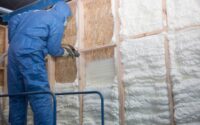Handling HVAC repairs or installations can be quite a task, especially when it comes down to creating a budget. Yet, knowing what elements need consideration can simplify the entire process. Let’s delve into what you need to consider when budgeting for any HVAC repairs or installations.
Understand the Scope of Work
The very first thing to consider is the scope of work required for your HVAC needs. Are you looking for a complete installation or just a repair? The more work that needs to be done, the more funds you may need to allocate.
-
Replacement Parts: Repairs may require specific parts that could drive up costs.
-
Comprehensive Installations: New installations may involve extensive work and costs, ranging from ductwork to zoning systems.
Being aware of what exactly is needed can provide a clearer picture of the budget you should plan for.
Assess the Current System Condition
The condition of your existing HVAC system can significantly impact your budget. If your system is older, it might need more frequent repairs or even a full replacement.
-
Age of the System: Older systems may be less efficient and could incur more repair costs.
-
Unit Efficiency: The efficiency of your current HVAC system can guide your decision on whether to repair or replace it.
Understanding the state of your system can help you determine the most cost-efficient approach to take.
Energy Efficiency Considerations
Energy efficiency is a vital aspect to consider when budgeting your HVAC needs. Even if it entails a higher upfront cost, an energy-efficient system can save you money in the long run.
-
Long-term Savings: Efficient systems reduce energy consumption, leading to lower utility bills.
-
Upfront Costs vs. Long-term Savings: Balancing initial installation costs against potential savings can guide budgeting decisions.
Aligning your choice with energy efficiency can be beneficial economically and environmentally.
Get Multiple Quotes
One smart move when managing budgets is to shop around for quotes from various contractors. This comparison can give you insights into market rates and help you make an informed decision.
-
Research Local Contractors
-
Request Detailed Quotes
-
Compare Features and Services
Taking the time to gather multiple estimates can help you find a solution that fits both your needs and your budget.
Consider Seasonal Factors
Seasonality can play a role in the cost of HVAC repairs or installations. More demand means potentially higher prices.
-
Peak Seasons: Times when the demand for heating or air conditioning is highest could impact pricing.
-
Off-peak Seasons: Getting work done during less busy periods can sometimes lead to discounts or promotions.
Scheduling work in the off-peak season might save on costs while still getting the desired results.
Take Warranty and Maintenance into Account
A crucial factor when budgeting is considering warranties or maintenance plans. Such features might increase upfront costs but can offer long-term savings.
-
Warranty Coverage: A good warranty can reduce future out-of-pocket expenses for repairs.
-
Regular Maintenance Plans: These can ensure system efficiency and prolong the lifespan, reducing the need for frequent repairs.
Investing in these protective measures could be a wise financial move.
Climate Considerations
Your local climate plays a significant role in determining the right HVAC system for your home. Different systems may be more suitable for different areas, impacting your budget.
-
Local Climate: Cold climates might need more robust heating solutions, whereas hot climates may require advanced cooling systems.
-
System Suitability: Choosing a system that efficiently meets your climate needs will influence installation and operational costs.
Understanding the climate in which you live can aid in choosing a system that’s effective and cost-efficient.
Identify Incentives and Rebates
Some locations offer incentives or rebates for installing energy-efficient HVAC systems. These financial aids can be extremely beneficial when managing your budget.
-
Research Local Government Programs
-
Check Utility Company Offers
-
Consider Federal Rebates
Staying informed on available incentives could significantly lower total costs.
Considering the effectiveness of new heating technologies can greatly influence your decision. There is much to be said about high-tech solutions—such as a smart thermostat—that can offer potential savings by optimizing energy usage. When undergoing a heating installation Keizer, you might find that new tech solutions can lead to efficiency improvements that ultimately pay for themselves in energy savings.
Plan for Unexpected Costs
No matter how detailed your initial budget is, unexpected costs can arise. Building a buffer into your total budget is a prudent way to prepare for the unexpected.
-
Emergency Fund: Keeping a contingency fund can help cover unforeseen expenses.
-
Unplanned Issues: Unanticipated problems, such as structural changes, may crop up during the repair or installation process.
Planning for the unexpected can prevent budget overruns and ensure the project’s smooth completion.
Consult the Experts
Sometimes, professional advice is invaluable. Consulting with HVAC professionals can provide insights that you may not have considered, ensuring that your budget is well-aligned with your needs.
-
Professional Assessments: Experts can identify potential issues and offer cost-effective solutions.
-
Experienced Guidance: Tap into their expertise to anticipate long-term needs and savings.
Professional consultation can ensure wiser investments in your HVAC system.
If you need AC repair in Keizer, it can be beneficial to speak with local professionals who understand the area’s specific climate needs and common system issues. Their experience in addressing local HVAC problems can offer targeted and effective solutions, often saving time and money in the long run.
Weigh DIY vs. Professional Services
Many homeowners face the decision of whether to do it themselves or hire a professional. While DIY may seem budget-friendly initially, it can sometimes result in more costs if things go awry.
-
DIY Considerations: Smaller repairs may be manageable on your own.
-
Professional Expertise: More complex installations might require professional skills to ensure safety and efficacy.
Weighing these options carefully can help you decide which will be most cost-effective in the long term.
Calculate Total Cost of Ownership
Consider not just the immediate costs but the total cost of owning and operating the HVAC system over time. This comprehensive view can offer a clearer picture of your investment.
-
Installation Cost: Initial expenses can be considerable but necessary for system setup.
-
Operational Costs: Ongoing energy consumption and maintenance contribute to long-term expenses.
Calculating the total cost of ownership can help you better evaluate the value of your investment.
Undoubtedly, when considering options like Keizer AC installation, the total cost of ownership becomes a vital part of the decision-making process. While an efficient system might have a higher initial price, its operational savings could make it the smartest choice over time.
Evaluate Return on Investment
Finally, evaluating the return on investment (ROI) for your HVAC system can provide valuable insights. A system that offers good ROI can contribute to both comfort and cost savings.
-
Energy Savings: Consider projected savings in energy costs over time.
-
Increased Property Value: A new or efficient HVAC system can add to your property’s worth.
Evaluating ROI ensures your funds are well spent, providing benefits beyond immediate comfort.
Final Thoughts
Budgeting for HVAC repairs or installations doesn’t have to be intimidating. With careful planning and informed decision-making, you can manage your finances effectively. Focusing on the elements discussed can lead to an HVAC solution that meets your needs and respects your budget. Remember, whether it’s a small repair or a full installation, weighing your options carefully will ensure you make the best investment for your home.








